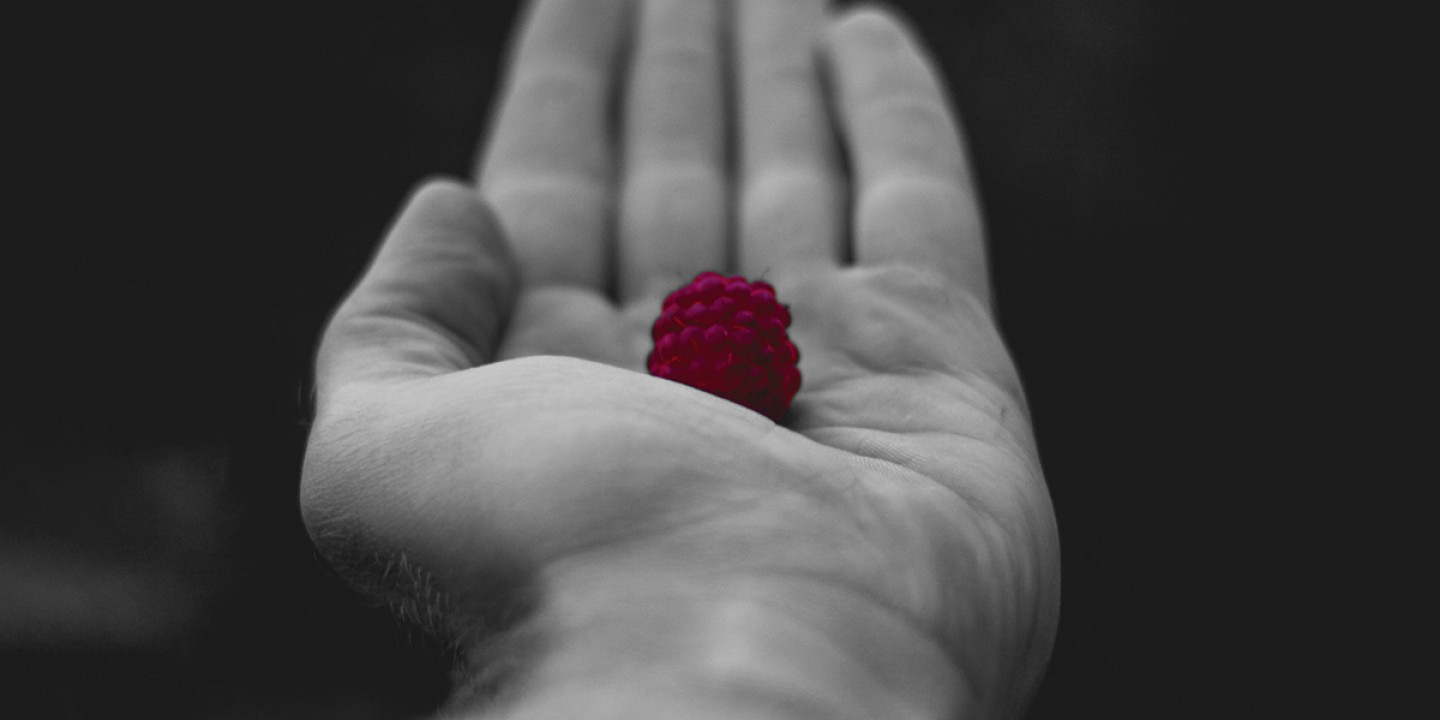
I still have my map of Boston’s Freedom Trail from having visited the nearby New England Holocaust Memorial 21 years ago. I kept the map because I had scribbled a quote on it while walking through the glass towers of the memorial. Each of the six towers, open to the sky, symbolizes a chimney of a Nazi extermination camp. Steam rises eerily through metal grates at the base of each tower. Quotes from Holocaust survivors are etched into the glass, interspersed among tiny six-digit numbers representing the 6 million Jews killed.
The quote I recorded that afternoon touches my soul as much today as it did then. It’s from Gerda Weissman Klein: “Ilse, a childhood friend of mine, once found a raspberry in the camp and carried it in her pocket all day to present that night to me on a leaf. Imagine a world in which your entire possession is one raspberry and you give it to your friend.”
Imagining such a world requires strenuous effort on our part because most of us can’t fathom such poverty.
Or is it abundance that Ilse displays?
Many of us are accustomed to having a choice of many things, and the privilege of choice is its own kind of wealth. A lone raspberry isn’t exactly a basketful of fruit.
But having many options in life can leave us with the impression that there’s always something better than what we chose. Social scientists tell us that the more choices we have in life, the more indecision we’re apt to exercise, and the more likely we are to wonder whether we made the best choice. Having to choose among multiple options opens the door to regret, since every choice closes certain doors that we may later wish had been left open.
Gerda Weissman Klein’s warm memory of a simple transaction suggests that perhaps Ilse never really entertained the idea of keeping of her raspberry. Logic would suggest she had some choices at her disposal: keep the berry, destroy it, eat it, or give it away. But when generosity is an individual’s entire modus operandi, the stress of deciding often disappears. A generous spirit knows what it wants, and that takes away the need to deliberate or equivocate among the options.
For Ilse, securing a raspberry in her pocket for the express purpose of giving it away hardly seemed like loss or deprivation. We sense her joy and freedom in that unselfish act.
In 1 Peter, the writer speaks of an “inheritance that is imperishable, undefiled, and unfading.” We commonly assume this inheritance has something to do with wholeness and salvation. But could a lone raspberry, given away in a hideous death camp, serve as its own kind of God-inspired inheritance for others? F. W. Beare’s paraphrase of this Bible verse—“an inheritance untouched by death, unstained by evil, and unimpaired by time”—causes me to wonder. Ilse’s generosity is her legacy of wealth: untouched by her own death, unstained by Third Reich evil, and unimpaired by the passage of time.
A version of this article appears in the print edition under the title “A timeless raspberry.”





